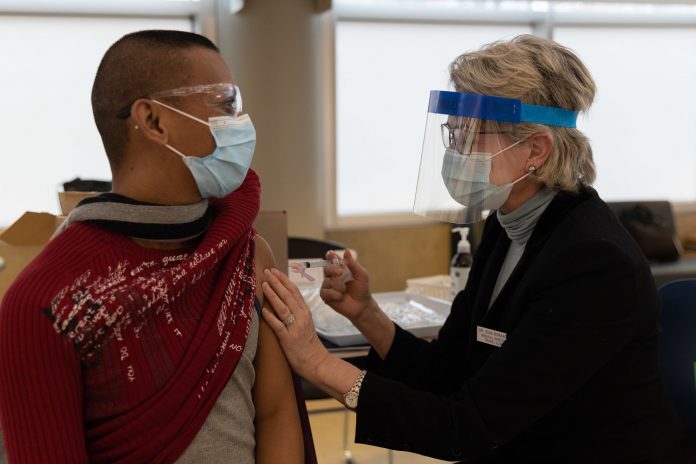How to ensure equitable access to vaccination during the current and future pandemics? The Council of Europe Committee on Bioethics has made today a number of recommendations, drawing particular attention to persons in vulnerable situations having difficulties in accessing health services.
First, strategies should be put in place to avoid generating discrimination due to material aspects, such as logistical and administrative barriers, fees for vaccination and risks of manipulations of the system. These strategies should be adapted to the needs of persons who are systematically disadvantaged in accessing healthcare.
The Committee also underlines the importance of strengthening transparency, information and communication as tools for building trust and ensuring that every person for whom the vaccine is recommended is provided with a fair opportunity to access vaccination.
Finally, appropriate level of safety and effectiveness of vaccines is required to ensure quality in vaccination. The European Pharmacopoeia (EDQM) provides for international quality standards for vacccines. In line with the Council of Europe MEDICRIME Convention, member states should also prevent and combat counterfeit vaccines.
The Convention on Human Rights and Biomedicine (Oviedo Convention), which is the only legally binding instrument at international level in this field, requires that member states “take measures to provide equitable access to health care of appropriate quality, taking into account health needs and available resources”. Governments are responsible for managing public health crises in line with human rights and fundamental freedoms.
When it comes to vaccination, this involves ensuring that everyone, without discrimination, is offered a fair opportunity to receive a safe and effective vaccine. Faced with a scarcity of vaccines, there is a need to prioritise groups in relation to the provision of access to vaccination with the aim of minimising deaths and severe illness as well as reducing transmission. However, it is also necessary that, within each group as defined by the prioritisation process, each person will be able to be vaccinated.
The Committee on Bioethics’ statement supports the World Health Organisation and other bodies in their efforts to promote equity between countries and to establish international cooperation mechanisms.

